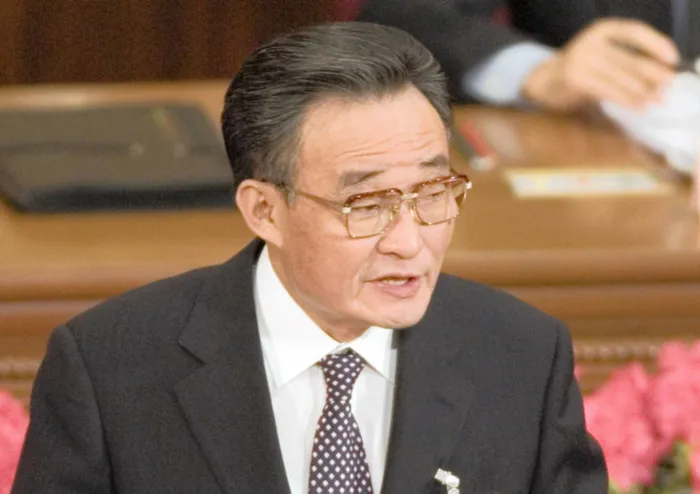Socialist government ‘is China’s key to development’

Wu Bangguo, the chairman of the National People's Congress reads his work report to delegates attending the third plenary session at the ongoing annual meeting of China's parliament in Beijing, China, on Sunday. Photo: Stephen Shaver/Bloomberg News Wu Bangguo, the chairman of the National People's Congress reads his work report to delegates attending the third plenary session at the ongoing annual meeting of China's parliament in Beijing, China, on Sunday. Photo: Stephen Shaver/Bloomberg News
Development and the escape from poverty through the pursuit of prosperity regulated by “a socialist market economy” were at the centre of China’s political system, which had been characterised by stability, a leading Chinese politician told members of the South African Parliament yesterday.
Wu Bangguo, the chairman of the standing committee of the National People’s Congress of China, addressed a joint sitting of the National Assembly and National Council of Provinces yesterday before President Jacob Zuma received him at his Tuynhuys office yesterday afternoon.
Wu stressed that China and Africa had much in common. China was Africa’s biggest trading partner and contributed about 20 percent to the continent’s recent strong economic growth. He noted that Africa had deep reserves of natural resources and his country was rich in the technologies needed to exploit these reserves.
He repeatedly mentioned that without political stability underpinned by the Chinese Communist Party, which is the only legal political party in China, there would be no prosperity in China. Since the economic reforms of 1978 – which opened up the socialist economy to free market activities – there had been a massive expansion of the economy.
Over the 60 years since the founding of “new China”, Wu said the Chinese Communist Party had led the Chinese people on a path of modernisation “with great confidence and creativity… the country has become stronger and the people lead a better life”.
Stressing that the governance system was based on “a socialist market”, he said the country had not looked back since the reforms, which he believed were “irreversible”.
At the top of Beijing’s agenda was development, which “should always be the top priority of national governance”. He described China and South Africa as key developing countries “with major influence” globally.
Poverty was also China’s biggest challenge, but great strides had been made. Since 1978 the country’s gross domestic product (GDP) had grown to $5.8 trillion (R41 trillion) from $216 billion.
Its share of the world economy had grown from 1.8 percent to 9.5 percent. The annual per capita income had rocketed from $266 to $4 300.
“China has become the biggest producer of major agriculture and industrial goods.”
Development in an environment of political stability was the winning recipe, he argued.
While public ownership was still the mainstay of the system, “other forms of ownership” had developed “side by side” with the public sector.
Strategic adjustments had been made to “the state-owned economy” by allowing shareholding in state-owned enterprises. These entities had also been listed domestically and overseas, Wu reported.
The non-public sector now contributed about two-thirds to GDP, he said, noting that the market had been “brought into play” in allocating reserves.